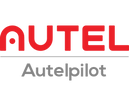Drones are everywhere, especially in the United States! Whether you fly a drone for fun or commercial purposes, you should purchase insurance for your drone! Drone insurance not only protects your investment, but also provides safety and security for your flying activities.
This article will take a deep dive into various aspects of drone insurance in the United States, including its definition, types, coverage, and purchase recommendations.
What is drone insurance?
Drone insurance is an insurance product designed specifically for drone owners and operators to cover the losses, liabilities, and legal risks that drones may face. These risks include, but are not limited to:
- Damage or loss of drones: Drones are expensive equipment that can be damaged or lost due to flying accidents, weather conditions, or operator errors.
- Third-party property damage: Drones can damage other people's property during flight, such as hitting houses or vehicles.
- Third-party personal injury: Drone accidents can cause injuries to others, and you may be subject to medical expenses and legal liabilities.
As drones (also known as unmanned aerial vehicles) become more and more popular, understanding and purchasing appropriate drone insurance is an essential part of drone ownership.
Drone insurance not only protects your investment, but also provides safety and security for your flying activities. This article will take a deep dive into all aspects of drone insurance in the United States, including its definition, types, coverage, and purchase advice.

Why should you buy drone insurance?
More and more people are learning about drones and want to experience drone flight photography. From Hollywood movie sets to Midwestern farms, Silicon Valley offices, and even New York City real estate and tourism, these flying cameras are sweeping many industries.
However, even the most skilled drone pilots can have drone flight accidents, and sudden changes in weather and pilot error are just a few of the many factors that lead to accidents. In the best case, these problems may only damage your drone; in the worst case, they may damage others or their property.
Understanding the inherent risks and legal liabilities of flying drones is a must for every drone pilot. However, the best solution to minimize the possibility of foreseeable risk losses is to purchase drone insurance, even if a real accident comes, there will not be much loss.
At the same time, some customers/employers may require the purchase of drone insurance for commercial drone purposes. In some areas of the United States, drone insurance is mandatory when drones are operated commercially. Having a valid insurance policy shows that you follow the rules and helps you avoid fines or penalties.
Drone Insurance Types and Coverage
Drone insurance is generally divided into several main types:
- Liability Insurance: Covers third-party property damage or bodily injury caused by your drone. This type of insurance is usually the most basic protection for drone owners and operators and is generally required.
- Damage and Loss Insurance: Covers damage or loss to your drone in flight or while in storage. This insurance can be purchased on a case-by-case basis.
- Additional Options: Some insurance companies offer additional options such as Equipment Add-on Insurance (covers equipment accessories), Weather Impact Insurance (such as damage caused by storms or rain), and Business Interruption Insurance (loss of income due to drone failure).

Drone Insurance Purchase Tips
Purchasing drone insurance is a wise investment, especially if you are using high-quality drone equipment and have some business purposes.
Compare products and quotes from different insurance companies: Different insurance companies may offer different insurance options and prices, so it is important to compare.
Understand the specific coverage of the insurance: Make sure you clearly understand the coverage of each type of insurance and whether there are additional conditions or exclusions.
Consider additional add-on insurance options: Depending on your specific needs and risk profile, consider whether you need additional add-on insurance for added protection.

How much does drone insurance cost?
Commercial drone insurance is similar to insurance for most other industries, and the cost of drone insurance varies widely based on a number of factors, including:
Type of coverage
- Amount of liability coverage selected
- Value of drone and associated ancillary equipment included in the policy
- Use of drone (e.g. basic marketing video vs. complex infrastructure asset inspection)
- Pilot experience
- Geographic location where drone is flown.
Drone liability insurance is typically the most expensive insurance. It starts at $500-$1,000 per year for $500,000-$1 million in coverage, but can go up if your drone operations are riskier.
Drone hull insurance typically costs 8-12% of the drone's value per year, and will go up over time. There are also short-term paid insurance options such as monthly and on-demand insurance.
What types of drone insurance are there?
Similar to insurance types for other physical products, drone insurance offers a wide range of coverage options. Drone insurance covers hull insurance, liability insurance, payload insurance, ground equipment insurance, bodily injury insurance, non-owned insurance, and more.
- Hull insurance: Hull insurance covers damage to the drone itself. Physical damage that affects the drone itself.
- Liability insurance: This insurance protects you from financial liability if your drone causes harm to someone else or damages their property.
- Payload insurance: This refers to special equipment such as cameras or sensors on the drone, and this insurance will provide protection if they are damaged or lost.
- Ground equipment insurance: This insurance covers the equipment you use to control the drone on the ground, such as additional remote controls, base stations, cameras, and any other equipment you add to the policy.
- Personal injury insurance: This insurance is designed to protect businesses and individuals from legal liability for personal and advertising injuries that occur during drone operations.
- Non-owned insurance: This refers to insurance for accidents that occur when a drone pilot flies someone else's drone.
Generally speaking, drone hull insurance and liability insurance are common insurances that effectively cover the rights and interests of relevant stakeholders.

Where can I buy drone insurance?
Most drone insurance is provided by third-party insurance companies, and there are also a few drone brands that provide drone insurance purchases, such as DJI and Autel Robotics.
Well-known US third-party insurance providers: SkyWatch.AI, AirModo, Bullock Agency, Avion Insurance, State Farm Drone Insurance Policy, Global Aviation Drone Insurance, BWI.
Private label drone insurance: DJI Care, Autel Robotics Care.
DJI Care and Autel Robotics Care provide warranty, product replacement, loss, water immersion, collision and other losses.
Related More: What is Autel Robotics Care & Third Party Liability Insurance?
Can I buy insurance on my drone after having accident?
For drone insurance service providers, whether it is self-branded insurance or third-party insurance service companies, only new and unactivated products or drone aircraft activated within the past 48 hours can be bound for insurance and make insurance claims for subsequent flight failures.
Therefore, when a drone has an accident, it is no longer possible to purchase insurance and obtain claims services.
If you forget to purchase Autel drone insurance 48 hours after the drone is activated and no flight accident occurs, you may still be eligible for insurance binding through our after-sales customer service, and we will try our best to help you.
Conclusion
Drone insurance is an important part of protecting your drone investment and the safety of your flying activities. By understanding and purchasing appropriate insurance, you can enjoy the fun of drone flying with more peace of mind and peace of mind.
It will be a wise choice to make sure to choose a reputable insurance company that provides comprehensive coverage and customizes the insurance plan according to your specific needs.

Frequently Asked Questions
Is insurance required?
Insurance is just a way to minimize the possibility of loss, and some states may require commercial pilots to purchase insurance. Whether to purchase drone insurance depends on the law and your own needs.
Can I buy insurance for my recreational drone?
Yes, recreational drone insurance can protect your drone from damage and provide liability coverage.
Can I buy insurance for my commercial drone?
Of course, the more valuable the drone, the better the coverage.
What factors affect drone insurance premiums?
Drone insurance premiums are affected by factors such as the type of insurance, drone specifications, operator experience, and flight history.
Does my drone have to be registered with the FAA to be covered?
FAA regulations require that both US recreational or hobby drones (drones weighing more than 250g) and US commercial drones must be registered and marked. Therefore, please comply with relevant regulations and purchase valid drone insurance.








